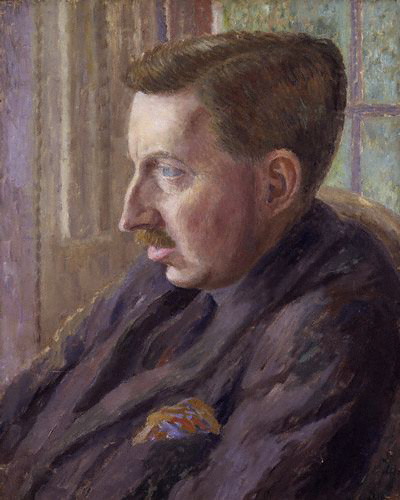4. Solved exercises
Watch this video about E. M. Forster. It's a very short one, but you will gain an idea of this English writer.
Complete the gaps with some missing words you are going to listen to.
E. M. Forster was an internationally __________ writer.
His classic __________ about 19th-century England were __________ into Oscar-winning films.
Complete these sentences using reported speech. Take care of the verb tense, although it is not always necessary to change it.
1) 'Do you want to dance with me?'
My friend asked me if ____________________.
2) 'Has Paco arrived in India?'
Alex and Andrés asked if ____________________ in India.
3) 'Did you watch the last movie by Al Pacino?'
Your brother asked her if ____________________ the last movie by Al Pacino.
4) 'Will you have Christmas lunch with us?'
We asked our friend if ____________________ Christmas lunch with us.
Complete these sentences using reported speech. Take care of the verb tense, although it is not always necessary to change it.
1) 'Where does your father park his car everyday?
 |
| By Lst1984. Creative Commons. |
My friend asked me where ____________________.
2) 'What are you doing now?'
Their parents asked the children what ________________.
3) 'How much money did you spend yesterday?'
Your father asked you how much ____________________.
4) 'Where have you recently played football?'
The teacher asked us where ____________________.
Complete the sentences in reported speech. Note the change of pronouns and tenses.
1) 'Where are my English books?', she asked.
She asked where ____________________.
2) 'Are you coming to the cinema with us?'
Your sisters asked us if ____________________.
3) 'How are you today?', my friend asked me.
My friend asked me how ____________________.
4) 'Has Sonia talked to Paco?, Antonio asked.
Antonio asked if ____________________.
5) 'Which dress do you like best?', your mother asked me.
Your mother wanted to know which ____________________.
6) 'Will you be at the party?', my friend asked me.
My friend asked me if ____________________.
 |
| By G. Augusto. Public domain. |
A Passage to India is a 1984 British/American drama film written and directed by David Lean. The screenplay is based on the 1924 novel of the same title by E.M. Forster and the 1960 play by Santha Rama Rau that was inspired by the novel.
This was the final film of Lean's career, and the first he had made in 14 years.
The film is set in the 1920s during the period of growing influence of the Indian independence movement in the British Raj. Mrs. Moore (Peggy Ashcroft) and Adela Quested (Judy Davis) sail from England to India, where Ronny Heaslop (Nigel Havers), the older woman's son and younger woman's fiancé, is the local magistrate in the provincial town of Chandrapore. Through school superintendent Richard Fielding (James Fox), the two visitors meet eccentric elderly Brahmin scholar Professor Godbole (Alec Guinness), and they befriend Dr. Aziz Ahmed (Victor Banerjee), an impoverished widower who initially meets Mrs. Moore in a moonlit mosque overlooking the Ganges River. Their sensitivity and unprejudiced attitude toward native Indians endears them to him. When Mrs. Moore and Adela express an interest in seeing the "real" India, as opposed to the Anglicized environment of cricket, polo, and afternoon tea the British expatriates have created for themselves, Aziz offers to host an excursion to the remote Marabar Caves.
The outing goes reasonably well until the two women begin exploring the caves with Aziz and his sizable entourage. Mrs. Moore experiences an overwhelming sense of claustrophobia that forces her to return to the open air. She encourages Adela and Aziz to continue their exploration but suggests they bring only one guide. The three set off for a series of caves far removed from the rest of the group, and before entering Aziz steps aside to smoke a cigarette. He returns to find Adela has disappeared; shortly after he sees her running headlong down the hill, bloody and dishevelled. Upon their return to town, Aziz is jailed to await trial for attempted rape, and an uproar ensues between the Indians and the Colonials.
The case becomes a cause celebre among the British. When Mrs. Moore makes it clear she firmly believes in Aziz's innocence and will not testify against him, it is decided she should return to England. She subsequently suffers a fatal heart attack during the voyage and is buried at sea.
To the consternation of her fiancé and friends, Adela has a change of heart and clears Aziz in open court. The Colonials are forced to make an ignominious retreat while the Indians carry the exonerated man out of the courtroom on their shoulders, cheering wildly. In the aftermath, Miss Quested breaks off her engagement and leaves India, while Dr. Aziz abandons his Western attire, dons traditional dress, and withdraws completely from Anglo-Indian society, opening a clinic in Northern India near the Himalayas. Although he remains angry and bitter for years, he eventually writes to Adela to convey his thanks and forgiveness.
Taken from Wikipedia.org